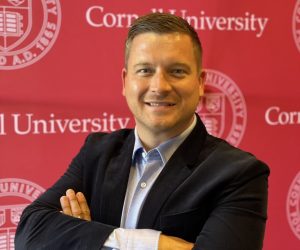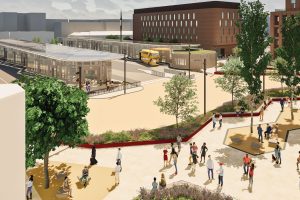Cobbetts video roundtable: The Green Energy debate

WIDESPREAD adoption of environmentally-friendly technologies is being held back by a complex chain of “blockers” which includes planners, quantity surveyors, big business and consumers.
That was the view of panelists at the TheBusinessDesk.com’s ‘greentech’ round table event, held in association with the Manchester office of law firm Cobbetts.
“It’s a supply chain agenda – it’s the architects, the planners, the quality surveyors who are sometimes the blockers,” said Stephen Waterworth, Energy Hub manager at the University of Salford. “We need to look at the whole supply chain because we’ve got the technology and knowledge to bring it all together.”
The panel also included: Saurabh Bhandari, associate director at Aedas Architects; Adrian Reed, head of cleantech and renewables at investment bank Altium Capital; Paul Johnson, corporate partner at Cobbetts; Hugh Goulbourne, leader of Cobbetts’ low carbon energy team; Catherine Haslam, real estate partner at Cobbetts; Nicola Frost, corporate finance partner at Cobbetts; Aziz Ul-Haq, corporate finance director at Deloitte and Chris Matthews, senior business development manager for The Co-operative Bank.
To view a picture gallery of the panelists click here
Saurabh Bhandari said suppliers of building materials were often not open to the latest ideas because they were always thinking of the bottom line. “The big players will only push products that make them the most money… the emphasis is on end users to pick up products that really are ethical, not just green but also in terms of toxicity.”
[VIDEO: 216]
But the end users – the consumers – are also culpable, said the panel because of a general reluctance to embrace simple changes, such as low energy lighting.
“We’re all talking about these green schemes but all we’ve got to do is reduce energy consumption in the home, drive green cars and get corporates to turn off the lights,” said Adrian Reed of Altium Capital. “There are some basics and if we can’t do these how are we going to do anything else?”
Mr Reed and Paul Johnson of Cobbetts suggested that legislation and stronger leadership were required to push the agenda. “I’m not sure how we change cultural issues unless it’s legislatively driven, so any new business park needs embedded generation or a district heating-style system,” said Mr Reed, while Mr Johnson expected flagship projects on the back of legislative changes to, “go some way to altering people’s mindsets.”
The panel suggested the London 2012 Olympics – which has its own energy provision on site in East London, could be one such landmark project.
[VIDEO: 218]
However, Aziz Ul-Haq of Deloitte said the market will eventually force change in individual behaviour. “We’ve had it relatively easy in terms of energy prices, I think the market will drive a change of behaviour. People will save energy if there’s an economic benefit.”
But green power generation also requires significant investment and the panel said funding was a constant problem. “There’s a lack of appetite for big infrastructure projects,” said Hugh Goulborne of Cobbetts who insisted that the creation of district heating systems in the major cities would incentivise the market.
“That allows the supply chain to come through. The finance sector will fund that when they know they have centralised demand. The most important question is where’s the market?”
District heating is where properties gain some or all of their power from local generators as opposed to the National Grid.
Chris Matthews of the Co-operative Bank stressed his organisation’s commitment to financing green energy projects but pondered the depth of green “know how” elsewhere in banking. He admitted there are private equity players, “who want to play the game” but as Adrian Reed pointed out these investors often seek a much higher than normal rate of return because of the perceived risk.
[VIDEO: 217]
Aziz Ul-Haq said a marine energy project he worked on failed to attract private equity cash and was eventually funded by high net worth individuals.
“What we need is some of the multi-nationals – proven players who have done it and know how to make the package work,” said Mr Reed citing the example of the German power group RWE investing £200m in Scotland, “using technology they know works”.
There was also some expectation that the Government’s Green Investment Bank could help kick-start projects at a local level, but also a fear that the capital would be insufficient to match the task in hand.
“We’ve got to have it so it does filter down to local business,” said Nicola Frost who stressed that more must be done to, “champion our region, support Daresbury [Science and Innovation Campus] and spend time with the innovators to convince everybody of the opportunities.”








